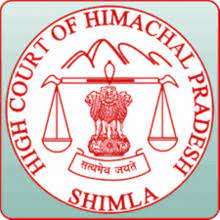(A) Code of Civil Procedure, 1908 – Order 41 Rule 27 – Additional Evidence – Due Diligence – Due diligence of the party contesting the suit has to be shown and not the due diligence of the legal representatives. (Para 21)
(B) Code of Civil Procedure, 1908 – Order 41 Rule 27 – Additional Evidence – When not to allowed – The additional evidence cannot be led to fill up the lacuna left – The additional evidence sought to be led is irrelevant as not related to suit property – Rightly not allowed. (Para 24, 25, 26)
(C) Practice and Procedure – No reason by first appellate court for differentiated from trial court – Trial Court relied on revenue entries and other established facts – Held: The learned First Appellate Court erred in upsetting the judgment and decree of the learned Trial Court without taking notice of the reasons assigned by learned Trial Court for dismissing the suit. (Para 31)
(D) Code of Civil Procedure, 1908 – Order 6 Rule 15 of CPC – Verification of the pleadings – Person acquainted with the facts of the case – Plaintiff witness testimony clearly shows that he was not aware of the factual position and could not have been a person acquainted with the facts of the case. The person who signed the plaint did not appear in the Court to prove that he was acquainted with the facts of the case. Therefore, the compliance of Order 6 R. 15 was not satisfied in the present case. (Para 33)
(E) Constitution of India, Article 300 – Code of Civil Procedure, 1908 – Section 79, Order 27 Rule 1 – Suits by or against the Government– Who can file a plaint in the suit filed by or against the Government – Government of India or State Government have to sue or to be sued by the name of Union of India or by the name of the State. The pleadings have to be signed by any person authorized by the State or Union of India. – Held: In the present case PW-1 did not state that Central Government or BBMB had authorized him to file the present suit or agreed to ratify his acts. There is no other evidence that Central Government or BMMB had authorized Senior Executive Engineer, Additional Superintending Engineer or Superintending Engineer, BBMB to file the suit or ratify the acts done by them. Therefore the plaint was defective and the suit was not filed by a competent person in the name of the Union of India or BBBM. Suit not maintainable. (Para 36, 38, 39, 40, 47, 48)
HIGH COURT OF HIMACHAL PRADESH
2023 STPL(Web) 132 HP
[2023:HHC:9926]
Sant Singh (Deceased) Through His Lrs Vs. Senior Executive Additional S.E. & Ors.
RSA No. 89 of 2007-Decided on 31.08.2023
https://stpllaw.in/wp-content/uploads/2023/09/2023-STPLWeb-132-HP.pdf







